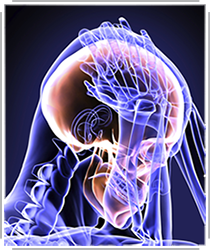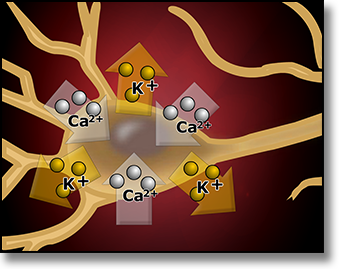Characteristics
 Courtesy ThinkStock: Devrimb
|
A concussion is a mild traumatic brain injury (mTBI) that interferes with the brain's normal functioning. It affects the brain's software — a functional disturbance. Research suggests there may also be a structural injury affecting the brain’s hardware, though not detectable using current technology. Concussion is a temporal issue. Different processes take place, some immediately (within a minute), others over time (over hours), and still others over extended time (over days). |
|
This disturbance involved in concussion is a neurometabolic dysfunction (a mismatch between the brain’s needs and the available resources) involving:
This neurometabolic dysfunction precipitates an "energy crisis" in the brain, leading to multiple symptoms and a state of post-concussive vulnerability. When a trauma occurs, the brain experiences an added need for glucose at the same time the body is shutting down systems to protect itself and as blood flow to the brain decreases. There is a mismatch between the brain’s energy demands and the available energy resources. The brain is trying to recover and repair itself. However, what the body needs to do is not what the body is doing, and this mismatch causes vulnerability to more damage. |
 Ionic flux
Content CDC |
